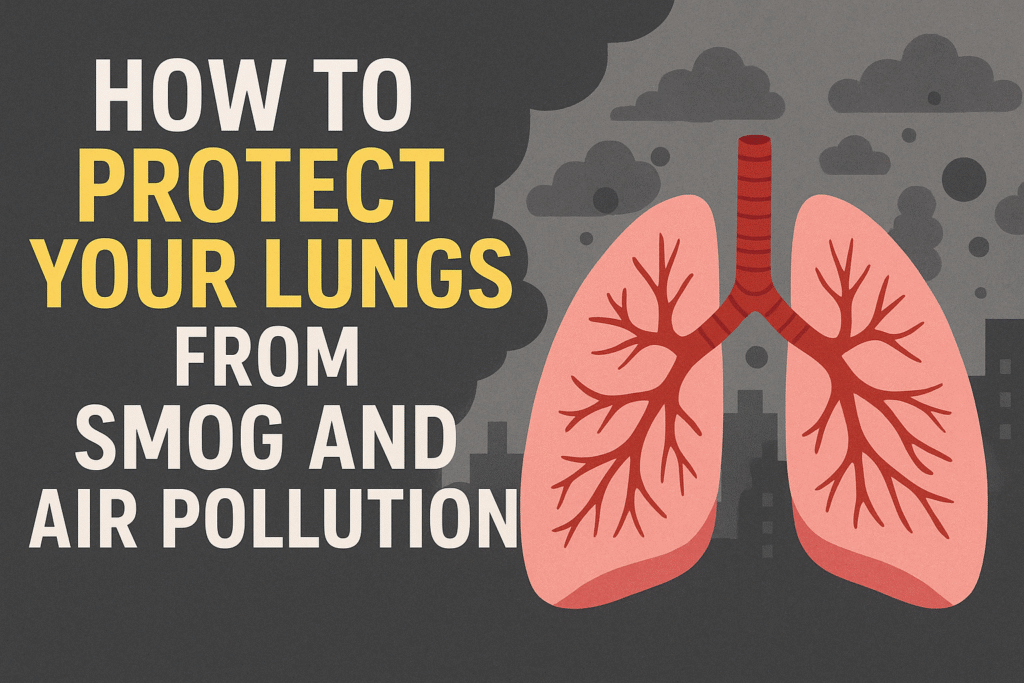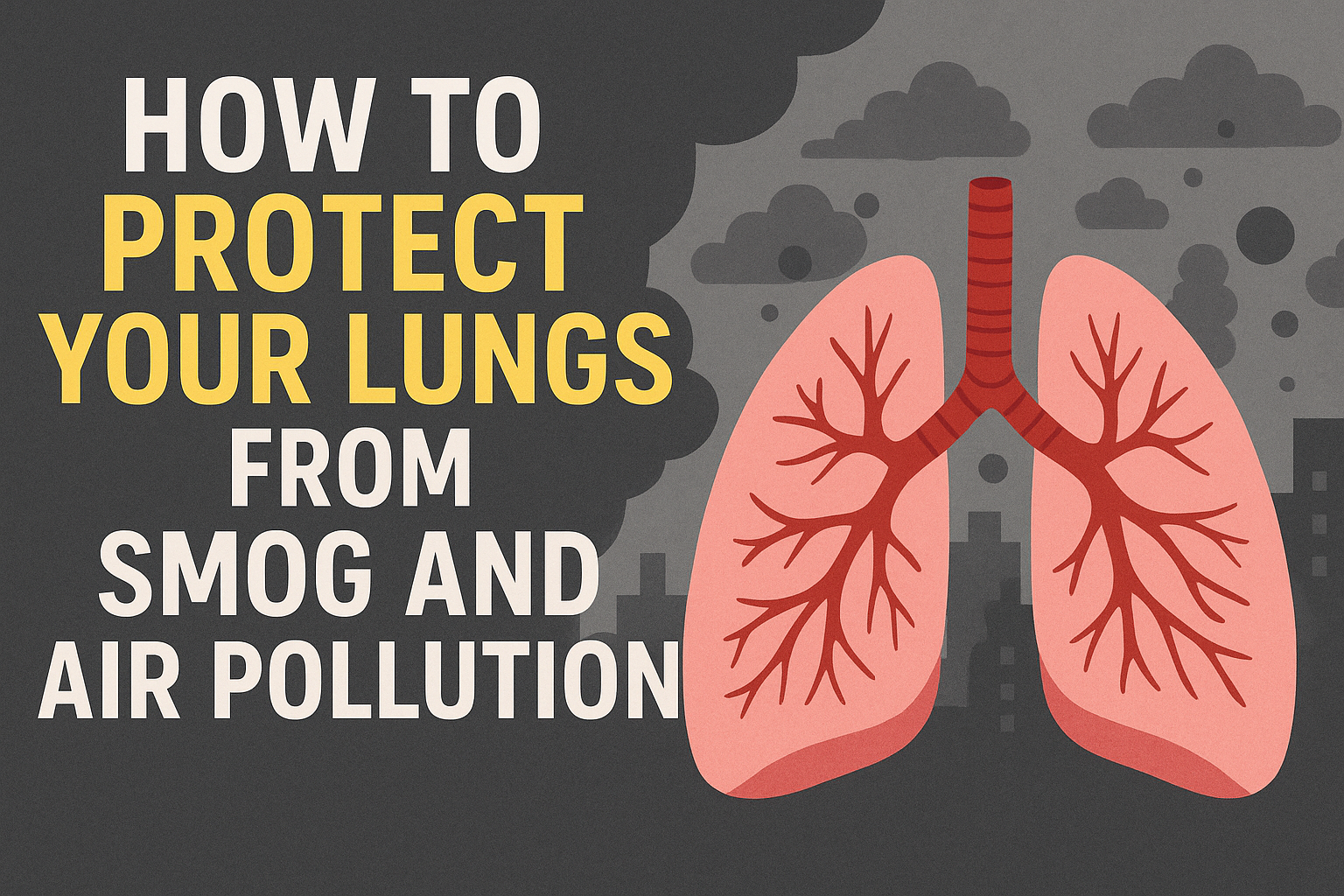Diwali, the festival of lights, brings joy, family gatherings, and vibrant celebrations. However, amidst the glow of diyas and festive fireworks, the rise in air pollution during Diwali poses serious health risks—especially to the heart and lungs. Firecrackers, vehicular emissions, and increased energy use contribute significantly to smog, affecting respiratory health and overall well-being.
According to Dr. Naresh Kumar Goyal, the Best Cardiologist Doctor in Fortis Hospital Shalimar Bagh, Delhi, exposure to high levels of particulate matter and toxic gases during Diwali can worsen breathing problems, aggravate asthma, and even increase heart-related risks. Understanding the impact of air pollution on lung and heart health, and adopting effective preventive strategies, can help you enjoy the festival safely and healthily.

Understanding Diwali Air Pollution and Its Effects on Lungs
What Causes Air Pollution During Diwali?
Several factors contribute to the sharp rise in air pollution during the festive season:
- Firecrackers – Release smoke containing harmful particulate matter (PM2.5 and PM10) and toxic gases.
- Increased traffic – More vehicles on the road lead to higher exhaust emissions.
- Industrial and household emissions – Extra energy consumption and waste burning intensify smog.
Health Effects on Lungs and Heart
Prolonged exposure to Diwali smoke and pollution can lead to:
- Irritation in the eyes, nose, and throat
- Persistent cough, wheezing, or shortness of breath
- Exacerbation of asthma or COPD
- Fatigue and chest discomfort
- Higher risk of respiratory infections and heart stress
Dr. Naresh Kumar Goyal advises that children, the elderly, and people with pre-existing heart or lung conditions should be especially cautious, as their systems are more sensitive to environmental pollutants.
Key Symptoms of Pollution-Related Lung Stress
Recognizing early warning signs can help in timely intervention:
- Persistent coughing or wheezing
- Chest tightness or heaviness
- Difficulty breathing in polluted areas
- Throat irritation or hoarseness
- Fatigue, dizziness, or restlessness
If you experience any of these symptoms during Diwali, it’s important to seek prompt medical advice.
Practical Smog Protection Tips for Diwali
1. Wear Protective Masks
- Use N95 or N99 masks when outdoors during heavy smoke.
- Ensure a proper fit for effective filtration.
- Avoid cloth masks, as they don’t block fine particulate matter.
2. Limit Outdoor Exposure
- Stay indoors during peak firecracker hours.
- Keep windows and doors closed to prevent smoke entry.
- Plan outdoor activities early in the morning or late at night when air quality is better.
3. Improve Indoor Air Quality
- Use HEPA air purifiers to remove pollutants.
- Add air-purifying plants like aloe vera or spider plants.
- Avoid lighting incense or candles that produce indoor smoke.
4. Protect Vulnerable Groups
- Ensure children, the elderly, and patients with lung or heart issues remain indoors during heavy smog.
- Encourage mask use when stepping out.
- Maintain good hydration to help the lungs clear pollutants.
5. Choose Eco-Friendly Celebrations
- Opt for eco-friendly firecrackers or laser light shows.
- Celebrate in open spaces where smoke can disperse easily.
- Avoid directly inhaling smoke when lighting diyas or candles.
Lifestyle Strategies to Support Lung and Heart Health
Dr. Naresh Kumar Goyal, Best Cardiologist Doctor in Fortis Hospital Shalimar Bagh Delhi, recommends adopting these habits to build long-term respiratory and cardiovascular resilience:
- Eat antioxidant-rich foods like berries, citrus fruits, and leafy greens.
- Exercise regularly to strengthen lung and heart capacity at home during High Smog days
- Stay hydrated to flush out toxins.
- Avoid smoking to reduce baseline lung vulnerability.
- Practice deep-breathing exercises such as pranayama for improved lung function at home .
Monitoring Pollution Levels During Diwali
- Use mobile apps or government websites to track Air Quality Index (AQI).
- Avoid outdoor activities when AQI exceeds 150.
- Follow local guidelines on firecracker usage and health advisories.
Special Considerations for Respiratory and Cardiac Patients
Patients with asthma, COPD, or heart disease should take extra precautions:
- Keep prescribed inhalers or medications handy.
- Avoid crowded or smoke-heavy areas.
- Consult your doctor before Diwali for preventive medication advice.
- Seek immediate medical help if you experience shortness of breath, chest pain, or palpitations.
Long-Term Health Implications
Repeated exposure to Diwali smog can:
- Reduce lung capacity
- Increase risk of respiratory and cardiovascular diseases
- Exacerbate existing chronic conditions like asthma or hypertension
Continuous awareness and protective habits can reduce long-term risks and promote better overall health.
Creating a Safer, Healthier Diwali
Let’s make this festival brighter in spirit, not in smoke:
- Promote eco-friendly celebrations within your community.
- Educate children about pollution control and mask use.
- Encourage collective efforts for cleaner air and responsible celebration.
Conclusion
Diwali is a time to celebrate life, not compromise it. As Dr. Naresh Kumar Goyal, the Best Cardiologist Doctor in Fortis Hospital Shalimar Bagh Delhi, emphasizes, simple protective steps and lifestyle adjustments can go a long way in safeguarding your lungs and heart during the festival season.
By staying aware, making mindful choices, and prioritizing health, you and your loved ones can truly breathe easy this Diwali — celebrating joyfully, safely, and responsibly.




